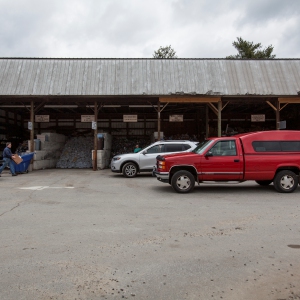Shaheen revives bill to launch ACERT programs
| Published: 07-30-2023 3:14 PM |
Almost 10 years ago, Eric Adams became the prevention enforcement treatment officer for the Laconia Police Department. His novel approach to helping members of the community deal with addiction was featured in the New York Times.
He has seen the impact drug addiction can have on families, particularly children who witness traumatic events at home. He’s part of a federally-funded program called the Adverse Childhood Experiences Response Team, which includes a police officer, a crisis services advocate, and a behavioral health professional who respond to emergency calls where a child is present after the scene has been secured by the police.
With a focus on preventing further harm to the child, the trained team assesses a situation and determine the next steps could be taken, including mental health counseling, early childhood education, a support group or child-parent psychotherapy.
“It’s been a great model that’s been working for communities here,” Adams told U.S Senator Jeanne Shaheen at a recent round table discussion about the program.
Shaheen recently reintroduced the National ACERT Grant Program Authorization Act that would establish a grant program to help similar programs to the ones piloted in New Hampshire grow throughout the country.
“Exposure to traumatic experiences during childhood can have devastating, long-term consequences on children’s physical, mental and emotional development. As crises like the substance use disorder epidemic continue to impact families, its essential that first responders have the resources necessary to administer early intervention and trauma-informed care for affected families,” Shaheen said in a statement.
Michelle Lennon, executive director of Archways, a family resource and recovery center with locations in Franklin, Tilton and Concord, and Erin Pettengill, vice president of the Family Resource Center at Lakes Region Community Services, both work with Adams to connect with families in the surrounding communities.
“We’re replicating ACERT to a peer recovery program,” said Lennon. Helping children to process their trauma can help prevent future drug abuse or incarceration, she said.
Article continues after...
Yesterday's Most Read Articles
 Hopkinton tries to nab out-of-town trash bandits
Hopkinton tries to nab out-of-town trash bandits
 UNH faculty and students call on university police chief to resign following his alleged assault on a student
UNH faculty and students call on university police chief to resign following his alleged assault on a student
 Steeplegate project to reopen to public comment as developer seeks to reduce required parking
Steeplegate project to reopen to public comment as developer seeks to reduce required parking
 Monitor Way developer seeks $4.67 million from city for proposed new road
Monitor Way developer seeks $4.67 million from city for proposed new road
 Northeast Coffee Festival comes to Concord this weekend
Northeast Coffee Festival comes to Concord this weekend
 NH Senate panel frowns on bill to ease vehicle inspection requirements
NH Senate panel frowns on bill to ease vehicle inspection requirements
“Study after study has shown that repeated exposure to traumatic experiences can have devastating, long-term consequences on children’s physical, mental and emotional development, posing serious threats to their future success and wellbeing,” Shaheen said in a statement. “With many Granite State families grappling with crises like the substance use disorder epidemic that often impart trauma on children, it’s essential that our first responders have the resources they need to invest in early intervention and keep our kids safe.”
The legislation calls for $10 million annually over four years to build a national Adverse Childhood Experiences Response Team modeled after what is happening in New Hampshire.
“ACERT needs to be in their communities,” said Stephanie Savard, director of strategic initiatives at Amoskeag Health in Manchester, which hosts its own Adverse Childhood Experiences Response Team.
Adams said that his officers are trained to be well-informed on how to present a consent form through a required four-hour training program.
Laconia Police officer Steven Orton, who works directly with Adams said that 73% of the families that have filled out a consent form to participate in the program have followed up to take advantage of additional resources.
“The work they are doing is breaking down the stigmas,” said Orton to those working with the ACERT program in their community.
“It’s remarkable to sit here and see how far we’ve come in the past decade,” Laconia Mayor Andrew Hosmer said.


 Transgender sports ban receives Senate committee support
Transgender sports ban receives Senate committee support House passes bill to raise minimum marriage age to 18, sending it to governor
House passes bill to raise minimum marriage age to 18, sending it to governor Charities will not have to pay rent to casinos under new law
Charities will not have to pay rent to casinos under new law Sununu says he’ll support Trump even if he’s convicted
Sununu says he’ll support Trump even if he’s convicted
